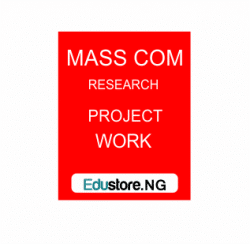CHAPTER ONE
1.0 INTRODUCTION
If the question “what is language?” is asked, it has many senses and can be variously defined. It can be language of a particular field like science, humanity, just to mention few. It can also be an animal language, sign language, and many other types of language. Humanity language especially spoken dominates them all.
Human language is natural. According to Adebayo [1995]”language [Human language] is one of the chief means by which a person learns to organize his experiences and thoughts”. According to Adebayo’s words, human language is one out of many means by which a person’s experience and thoughts can be organized. This supports the many senses that language has and also without language [spoken] thought will never be born and experiences of life will be wasted because no one will be to learn from them.
Communication is the major bridge that links the whole word. Communication is a crucial factor in the society at large and there is pieces evidence that prove this. The global village and internet prove this among others. Language is something that will habitually take for granted even though it is of great importance. It is quite natural to expect that the concern for language will remain central to the study of human nature as it has been in the past. Marshall Mcluham’s assertion that the medium is the message in consonance with the view that any distortion in language during broadcast bred lapses in communication more than written communication.
DOWNLOAD COMPLETE WORK
DISCLAIMER:
- For Reference Only: Materials are for research, citation, and idea generation purposes and not for submission as your original final year project work.
- Avoid Plagiarism: Do not copy or submit this content as your own project. Doing so may result in academic consequences.
- Use as a Framework: This complete project research material should guide the development of your own final year project work.
- Academic Access: This platform is designed to reduce the stress of visiting school libraries by providing easy access to research materials.
- Institutional Support: Tertiary institutions encourage the review of previous academic works such as journals and theses.
- Open Education: The site is maintained through paid subscriptions to continue offering open access educational resources.




